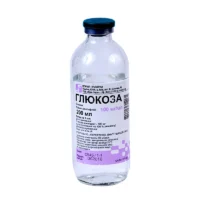Description
Reopoligliucin (Dextran 40, Sodium Chloride) Solution for Infusions 200 ml Vial
Ingredients
- Reopoligliucin solution for infusions contains dextran 40 and sodium chloride as active ingredients.
Dosage
- The dosage of Reopoligliucin should be determined by a healthcare professional based on the patient’s condition and needs.
Indications
- Reopoligliucin is indicated for use in conditions where plasma volume expansion is required, such as hypovolemia or shock.
Contraindications
- Do not use Reopoligliucin if the patient has a known hypersensitivity to any of the ingredients.
Directions
- Reopoligliucin should be administered intravenously by a healthcare professional following proper dilution and infusion rates.
Scientific Evidence
- Studies have shown the efficacy of dextran solutions like Reopoligliucin in increasing plasma volume and improving hemodynamic stability in various clinical settings.
Additional Information
- It is important to monitor the patient for signs of fluid overload or hypersensitivity reactions during Reopoligliucin infusion.
Pharmacological Effects
- Reopoligliucin works by expanding plasma volume, which can help improve tissue perfusion and oxygen delivery in conditions such as hypovolemia or shock.
Clinical Trials
- Clinical trials have demonstrated the effectiveness of dextran solutions in improving outcomes in patients with hypovolemic shock and sepsis, highlighting the importance of plasma volume expansion in critical care settings.



